Twain, Mark: Selected Obituaries Read online
Page 4
Endowed with abilities which might have enabled him to win fame as an interpreter of life by means of serious language, he chose for his patroness the comic muse, and was loyal to his choice. Hence he was always young and his humor always new, "Age could not wither, nor custom stale, his infinite variety." Even amid sorrows that in most cases wring the heart till not even hope is left in it, he showered his mellow sunshine on the world.
American in humor, he was also American in character. Beneath his radiant playfulness with kings and worlds and deep philosophies the chords of life responded to the touch of high ideals. His written and his spoken words were entertainers of peoples, presidents and princes. His unrecorded prayers were deeds.
He had experience of life in all its salient ways yet found no road, however rough, that did not have a flower along its marge. Whether wanderer, wage earner, author, capitalist or insolvent, or wearing an academic crown, whether lover, husband, father, neighbor or friend, his private joys or griefs could not raise a bar between him and the millions that were gladdened by his smile.
Nor can death come between him and the world. He will live in his works.
Hail, then, thou weaver of lingering laughter, but not farewell.
* * *
New York Times Obituary
From The New York Times
22 April 1910
[Anonymous]
That Samuel L. Clemens was the greatest American humorist of his age nobody will deny. Posterity will be left to decide his relative position, in letters among the humorists of English literature. It is certain that his contemporary fame abroad was equal to his fame at home. All Europe recognized his genius, the English people appreciated him at his own worth, and the University of Oxford honored him with a degree. His writings commanded a higher price in the market than those of any other contemporary whose career was solely devoted to literature. His "public" was of enormous extent. From "The Jumping Frog" to the "Diary of Adam" everything that came from his pen was eagerly read and heartily enjoyed by multitudes.
Much that he wrote has already been forgotten, inevitably, and in spite of definitive editions and the admirably practical management of his business in the later years of his career. But nearly all that Jonathan Swift, Fielding, Sterne, and Smollett wrote has been forgotten, though their fame, resting on a few books, still lives. Artemus Ward, Mark Twain's greatest predecessor as a National jester, is now little more than a name. Nasby belonged exclusively to the Reconstruction period. For any American humorous writer it would be fit to compare with Mark Twain we must go back to Washington Irving. But the author of Knickerbocker's ironical history and the Sleepy Hollow legend did not surpass, in those denotements of the humorous genius, the author of "The Adventures of a Cub Pilot on the Mississippi" and "Huckleberry Finn." Indeed, it is hard to say that Irving ever surpassed Clemens. Without belittling the first great American prose writer we are compelled to doubt if posterity will name him in the same breath with the humorist who has just passed away.
The "Innocents Abroad" and "A Tramp Abroad" are likely to be remembered among the great travel books of all time. Full of the audacity, the wild exaggeration and violent contrasts which distinguish the National humor, they are equally remarkable as the veracious record of fresh impressions on a fertile and responsive mind. Mr. Clemens's more serious works, such as "The Prince and the Pauper," an incursion into the field of historical romance. "A Yankee at the Court of King Arthur," and "Joan of Arc," have been read by multitudes with great delight. He has been quoted in common conversation oftener, perhaps, than any of his fellow-countrymen, including Benjamin Franklin and Lincoln. He has been honored by misquo tations, too, and the humorous sayings of the ancients have been attributed to him, though he never borrowed. His wit was his own, and so was his extravagance, and his powers of observation never failed him.
We have called him the greatest American humorist. We may leave it an open question whether he was not also the greatest American writer of fiction. The creator of Mulberry Sellers and Pudd'nhead Wilson, the inventor of that Southwestern feud in "Huckleberry Finn," which, with all its wildly imaginative details, is still infused with rare pathos, has certainly an undying vitality. An emotional and quite unconventional sort of man, Clemens was, whose early life was a hard struggle for existence. He obtained his education where he could get it. Presumably his faults were as large as his merits. Intellectually he was of Herculean proportions. His death will be mourned, everywhere, and smiles will break through the tears as remembrance of the man's rich gift to his era comes to the mourners' minds. However his work may be judged by impartial and unprejudiced generations h is fame is imperishable.
* * *
Washington Post Obituary
From The Washington Post
22 April 1910
[anonymous]
Mark Twain
When Samuel L. Clemens, better known as "Mark Twain," died, there passed from this earth a world character. Wherever civilization was, or touched, his pen name, at least, was known. Mr. George Kennan found in an obscure Siberian village but two things to remind him of home, one a sackful of peanuts and the other a dilapidated copy of "Innocents Abroad." The natives knew not how to eat the peanuts, nor, in all probability, had one of them the slightest inkling as to the contents of the book. Yet both were there, sure precursors of a better day to come.
When one of its members dies, Congress adjourns in respect to his memory. Now that Mark Twain has passed away, the world will pause, if but for a moment, in its work and its play, its planning, and money-getting, to honor him. For thousands that never saw him felt that they knew him, and knew that they loved him.
It has been said of Emerson that he lifted the idols of men from their pedestals and placed them reverently on the ground. Mark simply poked the false gods in the ribs, and they came down of their own accord. Herein lay his great work, that he mercifully emancipated human beings from their foolish prejudices and their foolish selves. His was not the cynicism of the world weary, but the sturdy irreverence of eternal boyhood, and his never failed to embody something of his nature in his works, or to impart it to his readers.
We have wept with him at the grave of Adam, gathered "dornics" with him in the Holy Land; we have stayed behind and counted the silver spoons with the czar after this irrepressible had passed, and then hastened on to join him again. We have traveled up and down the Mississippi with him and Huck Finn and the Dolphin, and together have hobnobbed with real royalty. We have studied art with him, to much profit, and have come to know, under his guidance, that a good way to tell a St. Sebastian was by the arrows, and that it was a man's inalienable right to say that Turner's pirate ship looked like a "yellow tomcat expiring in a platter of stewed tomatoes," if we thought that way.
Now that he has gone, the world will seemingly go on as before. None knew this better than he. And yet there is a conviction that the scheme of life has altered for his having lived here; that sham and pretense can never rule as fully again as before he came laughing along.
And how sympathetic he was! How quickly responsive to the true nobility in man, wherever found, in high or low! He never ridiculed the right.
Tears and smiles for loved Mark Twain! Tears for the passing of such a soul from earth, and smiles in memory of his work and in the assurance of his happiness beyond.
From The Washington Post
24 April 1910
by Arthur B. Krock
Old Innocence has gone abroad, and
the sea is wide between.
I saw his hand on the misty wheel as
he steered for the darkened main
He took his laugh and he took his pipe
and the place where his heart had been,
And he crossed the bar where the
waters gulped the plumb-line below mark twain.
He has steered from the flats and the
yellow flood that he knows from bed to brim
To the greenish gush of a stranger
wave that bathes every western star;
And "Give me my glasses," I heard him
say -- for the night of the Lord is dim,
And the salt spray blinds and the
wind cuts cold as the ship sails out by the bar.
'Twould be time to weep for the good
gray head that is lost in the driving spray
Were there not in my study window
here a boy with a puckered lip,
And he whistles shrill, "Oh, Buff'lo
gals, ain't you coming out today?"
So I know tonight that he'll join
Huck Finn and go for a pirate trip.
'Twould be time to weep for the one
that's gone did the boys he loved go, too,
But Tom and Joe and Sid and Huck
on my study shelves I spy.
So good-by, Mark Twain, may you steer
far out; may the wheel at your helm turn true;
And I'll keep Tom straight while
you're off to sea, and for Huck -- well, Mark, I'll try.
* * *
Atlanta Constitution Obituary
Mark Twain, World-Servant
From The Atlanta Constitution
23 April 1910
[anonymous]
Wherever in the civilized world men and women and little children love humor and cleanliness, sweetness and far-reaching insight into the universal human nature, there will be genuine mourning over the death of Samuel L. Clemens, "Mark Twain."
Rarely has a single figure in our national literature towered with such unique and encyclopaedic distinction.
Mark Twain was a profound humorist, paradoxical as that statement may seem. The shallow merry-maker with his quips and turns and cheaper puns and mental acrobatics is common enough in the story of the race. His is a faculty that barely scratches the surface of flesh and blood, lacking the ability to penetrate to the quick and touch the eternal humanities, whether they reside in the soul of the hyper-cultured product of the twentieth century, or the semi-barbarian on the outposts of civilization.
And this is what Mark Twain accomplished, not spasmodically, but virtually in all of his written endeavors. Always he sounded the human note. It is true that his brand of humor and humorous philosophy, sometimes deftly screening a far more serious motif, was reflective of American thought and genius. But in America is a conglomerate of the world's races, an amalgam from the melting pot of the best and the worst of the old world, so that what civilization reverenced in Twain was the glimpse he gave it of a blend of itself, as typified in the universal Ame rican.
Little of the slap-stick of the element of boisterousness may be found in the work of this master craftsman. Drollery there is in abundance, quaintness and charm of style abides alway, sustained and intuitive humor is never far absent from his elbow. But the cruder and more vulgar effects he avoided instinctively, bringing to bear a delicacy tempered with breadth.
Men loved him not only for the fact that he gave them cheer, but that his quiet and unfailing courage gave them inspiration. He mocked at adversity. He combatted desolation with a smile and a sweet stubbornness that never acknowledged itself beaten.
He was truly a world-servant. And world-wide is the wish that his sleep may be sound, broken only by those pleasant dreams that lighten the face of slumbering innocence with chastened smiles.
* * *
Chicago Tribune Obituary
From The Chicago Daily Tribune
23 April 1910
[anonymous]
Alas, we can no longer smile at Mark Twain's celebrated jest that the reports of his death were "greatly exaggerated." The laugh which for years has rippled around the world has vanished, and on the coffin of Samuel Langhorne Clemens the nations of earth drop the tribute of their tears.
But it is not a mere farceur who lies dead today. He was, indeed, a fellow of infinite jest and peculiar fancy; he was far more than that, however. He could engulf the whole world in a tidal wave of mirth with "The Jumping Frog" or "Innocents Abroad," but he could also move it to tears with the pathos of "The Prince and the Pauper," sting it with the irony of "The Man Who Corrupted Hadleyburg," or freeze its blood with horror at the recitals of what Leopold did in the Congo. It is true that there are coarse pages in "Roughing It," but where is there a more lifelike transcript from nature than "Tom Sawyer" or "Huckleberry Finn"? So if the cap and bells lie on his bier today there are plenty of tributes to his other qualities to cover them from sight.
Yet it was as a humorist that he made his reputation and place in American letters, and as such he will no doubt earn recognition from those who come to study his achievements in the future. Taste in humor is at best a fickle thing and not to be too much depended upon. Our fathers roared at Josh Billings, Artemus Ward, Seba Smith, and Orpheus C. Kerr, as they and we older ones have done at Mark Twain's earlier efforts. It remains to be seen whether our children will find "Innocents Abroad" and "Roughing It" as funny as we thought they were. Ward's humor in its evanescent qualities was much like the best of Twain, but the present gen eration finds "The Genial Showman" a trifle caviar today.
It is not unlikely that Twain realized the shifting and uncertain reputation represented by the jester's bauble, and that this accounts for the varied nature of his literary output. It is certain that he set much more store on what he produced after 1885 than on what he had done before, and that he not only dropped the Gargantuan laugh of "Roughing It" in his later years, but also confined much of his more glancing wit to after dinner speeches and interviews.
This would account in part for his attempts at more serious things, his excursion into biography in his "Joan of Arc," his satires of society and politics, his melodrama, his identification with various civic movements, his delineation of boy life in "Tom Sawyer" and its companion book, and his serious effort at producing real fictional character divorced entirely from the element of laughter.
At any rate, his humor, however it may be criticised, had a strongly native quality. This was as true of his finer as of his coarser moods. Andrew Lang speaks of Twain's "almost Mephistophelean coolness, an unwearying search after the comic side of serious subjects, after the mean possibilities of the sublime -- these with a native sense of incongruities and a glorious vein of exaggeration, make up his stock in trade." This was certainly true of his earlier days, but for years he had substituted for those qualities a fine vein of wit which denies analysis as a soap bubble would. With added years his sense of humor took on, as he might have said, a more serious phase, and he used it valiantly as a weapon against corruption, hypocrisy, and cant.
Well, whatever he was -- jester, satirist, novelist, or reformer -- he has left us the memory of many pleasant hours, of a life honestly and usefully lived, and of a most genial and lovable personality.
* * *
L.A. Times Obituary
Fresh May His Memory Remain.
From The Los Angeles Times
22 April 1910
[anonymous]
It is the decree of fate that Mark Twain return to heaven, which loaned the genial humorist to us for a while. He has been intellectual sunshine to mankind for two generations.
[OMITTED BIOGRAPHICAL SUMMARY]
Samuel Clemens was a humorist philosopher. He was as philosophic as humorous. His humor dealt almost altogether with human nature in its everyday phases, almost in its crude forms. He was born one of the common people, and all his life in its formative stages was spent among plain people. There is not much edge to his jests. They play around their objects as sheet lightning flashes over the sky. They do not harm and never cause any fear of danger. But they go to the very heart of human nature and sound the depths of its aspirations, aims and hopes. In jest Clemens is what Dickens is in story. There is not the pathos that marks the "death of Little Nell," but there is as rollicking fun as in any page of the "Pickwick Papers."
Sam Clemens was an American humorist. His jokes are broad and good-natured. There is
the crudeness in them that is found in western life of fifty years ago. They lack the subtlety of French wit. The delicate touch, the fine point, are not there. It is the thought of the plain and of the mining camp whose color is caught, whose essence is distilled -- not that of the drawing-room or boulevard.
But that the soul of human nature is preserved in the writings of Mark Twain is shown by their popularity wherever the language is understood. A Boston audience laughed at Twain with as much glee as one in San Francisco. London enjoyed "Pudd'nhead Wilson" as much as New York. And in the Antipodes the Melbourne Larrigans laughed with as much abandon as a New York Bowery boy or a San Francisco hoodlum. Moreover, Oxford undergraduates and university dons sat side by side with the common herd of the street, "Townies" and "Gownies" both in uproar at Mark Twain's quaint jokes.
* * *
New York World Obituary
MARK TWAIN ABROAD From The New York World
23 April 1910
[Anonymous]
The obituary notices and appreciations of Mark Twain in the foreign press reveal an acquaintance with his works and an intimate interest in his personality such as it has been the lot of no other American author to deserve. From the comments of the London journals it might be inferred that a favorite British writer had passed away, and the tributes of the German and Italian press indicate that his death is regarded in Berlin and Rome as a personal loss.
One reason of his popularity abroad is no doubt to be found in the universality of the sense of humor which makes what New York is laughing at laughable in Berlin. But it was chiefly the very difference of the quality of Mark Twain's humor from anything in British or Continental humorous literature which appealed to foreign readers. It was as characteristically American as negro minstrelsy or the Wild West, as Dan Rice or Buffalo Bill, and was relished accordingly by virtue of its originality and contrast.

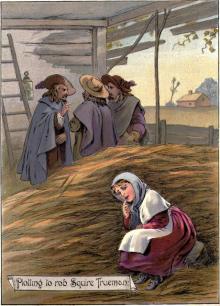 Goody Two-Shoes
Goody Two-Shoes The Pearl Box
The Pearl Box And when you gone...
And when you gone... Stranger At The Other Corner
Stranger At The Other Corner My Young Days
My Young Days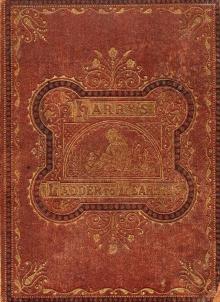 Harry's Ladder to Learning
Harry's Ladder to Learning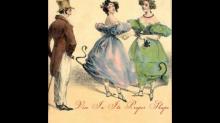 Vice in its Proper Shape
Vice in its Proper Shape_preview.jpg) Promise (the curse)
Promise (the curse)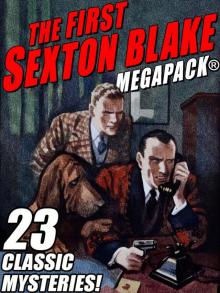 The First Sexton Blake
The First Sexton Blake Golden Moments
Golden Moments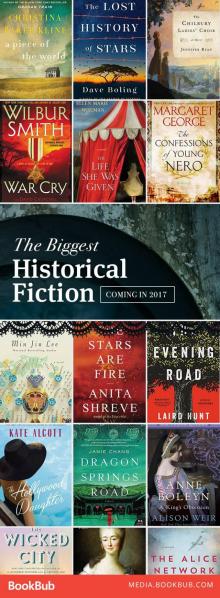 Hildebrand; or, The Days of Queen Elizabeth, An Historic Romance, Vol. 2 of 3
Hildebrand; or, The Days of Queen Elizabeth, An Historic Romance, Vol. 2 of 3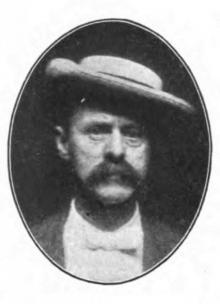 The Ice Queen
The Ice Queen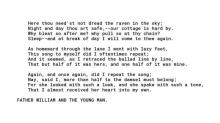 Phebe, the Blackberry Girl
Phebe, the Blackberry Girl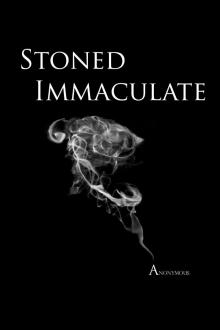 Stoned Immaculate
Stoned Immaculate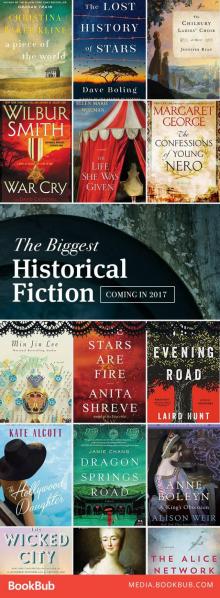 Hildebrand; or, The Days of Queen Elizabeth, An Historic Romance, Vol. 3 of 3
Hildebrand; or, The Days of Queen Elizabeth, An Historic Romance, Vol. 3 of 3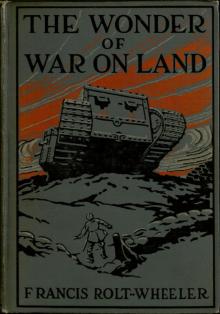 The Wonder of War on Land
The Wonder of War on Land Breaking Bailey
Breaking Bailey The Little Girl Who Was Taught by Experience
The Little Girl Who Was Taught by Experience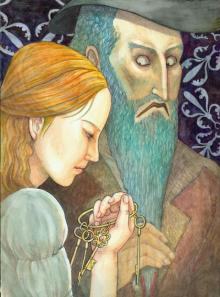 The Popular Story of Blue Beard
The Popular Story of Blue Beard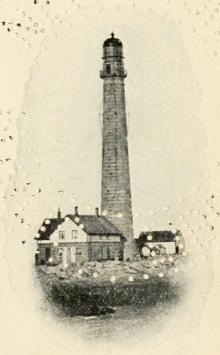 The Life Savers: A story of the United States life-saving service
The Life Savers: A story of the United States life-saving service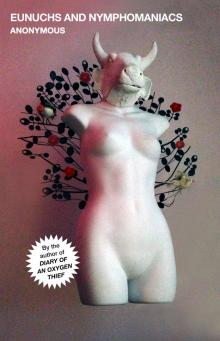 Eunuchs and Nymphomaniacs
Eunuchs and Nymphomaniacs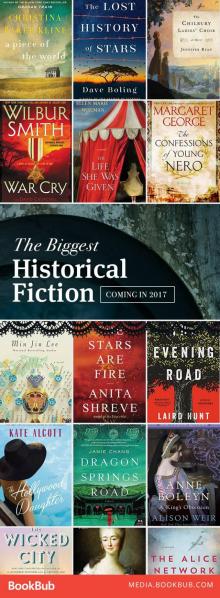 Hildebrand; or, The Days of Queen Elizabeth, An Historic Romance, Vol. 1 of 3
Hildebrand; or, The Days of Queen Elizabeth, An Historic Romance, Vol. 1 of 3 Kitty's Picnic, and Other Stories
Kitty's Picnic, and Other Stories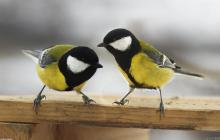 Two Yellow-Birds
Two Yellow-Birds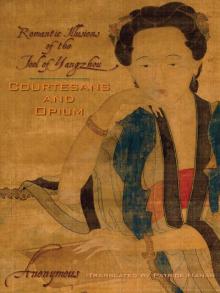 Courtesans and Opium
Courtesans and Opium The Emigrant's Lost Son; or, Life Alone in the Forest
The Emigrant's Lost Son; or, Life Alone in the Forest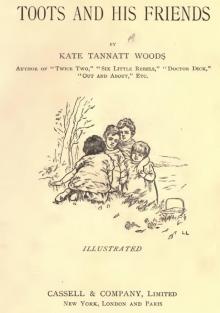 Toots and His Friends
Toots and His Friends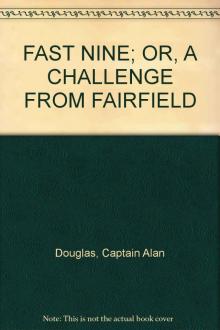 Fast Nine; or, A Challenge from Fairfield
Fast Nine; or, A Challenge from Fairfield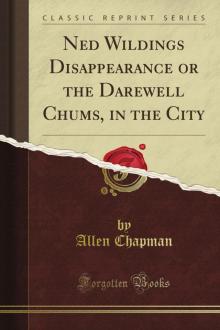 Ned Wilding's Disappearance; or, The Darewell Chums in the City
Ned Wilding's Disappearance; or, The Darewell Chums in the City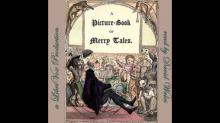 A Picture-book of Merry Tales
A Picture-book of Merry Tales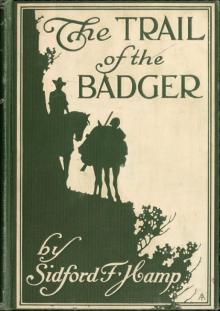 The Trail of The Badger: A Story of the Colorado Border Thirty Years Ago
The Trail of The Badger: A Story of the Colorado Border Thirty Years Ago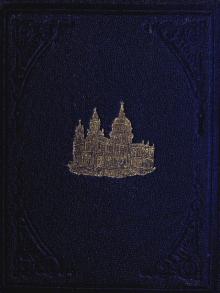 Peter Parley's Visit to London, During the Coronation of Queen Victoria
Peter Parley's Visit to London, During the Coronation of Queen Victoria The Rainbow, After the Thunder-Storm
The Rainbow, After the Thunder-Storm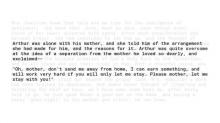 Arthur Hamilton, and His Dog
Arthur Hamilton, and His Dog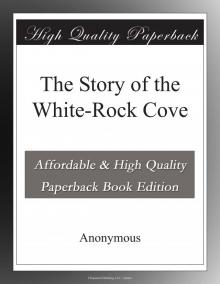 The Story of the White-Rock Cove
The Story of the White-Rock Cove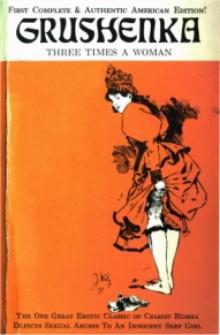 Grushenka. Three Times a Woman
Grushenka. Three Times a Woman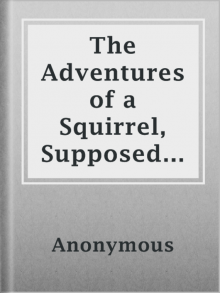 Adventures of a Squirrel, Supposed to be Related by Himself
Adventures of a Squirrel, Supposed to be Related by Himself Falling in Love...Again
Falling in Love...Again The Colossal Camera Calamity
The Colossal Camera Calamity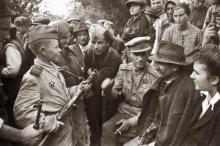 Child of the Regiment
Child of the Regiment Elimination Night
Elimination Night The Kingfisher Secret
The Kingfisher Secret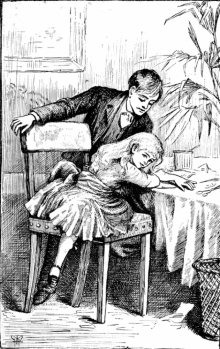 Left to Ourselves; or, John Headley's Promise.
Left to Ourselves; or, John Headley's Promise.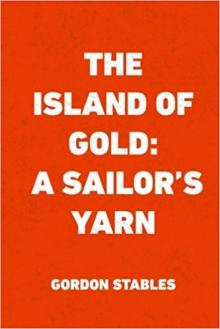 The Island of Gold: A Sailor's Yarn
The Island of Gold: A Sailor's Yarn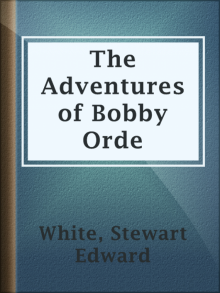 Adventures of Bobby Orde
Adventures of Bobby Orde Twain, Mark: Selected Obituaries
Twain, Mark: Selected Obituaries When Love Goes Bad
When Love Goes Bad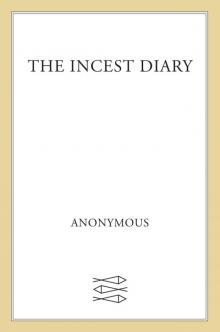 The Incest Diary
The Incest Diary Calling Maggie May
Calling Maggie May The Infidelity Diaries
The Infidelity Diaries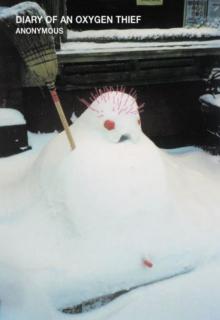 Diary of an Oxygen Thief (The Oxygen Thief Diaries)
Diary of an Oxygen Thief (The Oxygen Thief Diaries) ARABELLA
ARABELLA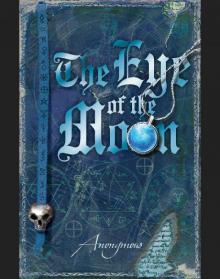 The Eye of the Moon
The Eye of the Moon Dara
Dara THE ALTAR OF VENUS: The Making of a Victorian Rake
THE ALTAR OF VENUS: The Making of a Victorian Rake The Book of Death
The Book of Death The Book of David
The Book of David The Devil's Graveyard
The Devil's Graveyard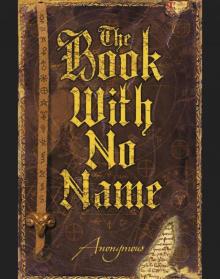 The Book With No Name
The Book With No Name I Am A Lesbian
I Am A Lesbian Njal's Saga
Njal's Saga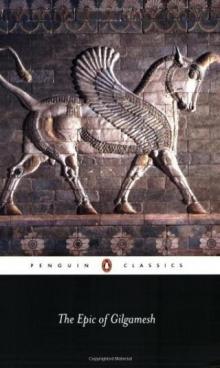 The Epic of Gilgamesh
The Epic of Gilgamesh Darling
Darling Tal, a conversation with an alien
Tal, a conversation with an alien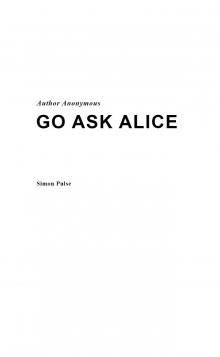 Go Ask Alice
Go Ask Alice Aphrodizzia
Aphrodizzia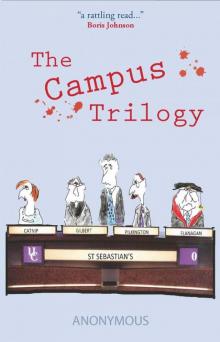 The Campus Trilogy
The Campus Trilogy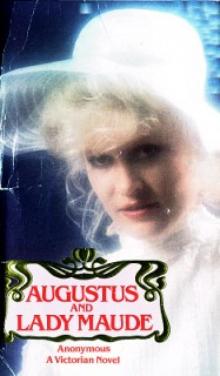 Augustus and Lady Maude
Augustus and Lady Maude Lucy in the Sky
Lucy in the Sky Sight Unseen
Sight Unseen Pleasures and Follies
Pleasures and Follies The Red Mohawk
The Red Mohawk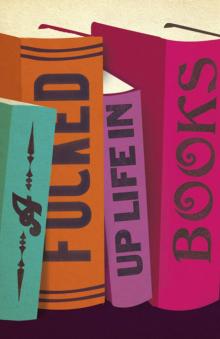 A Fucked Up Life in Books
A Fucked Up Life in Books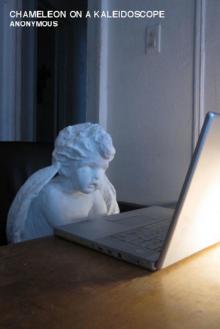 Chameleon On a Kaleidoscope (The Oxygen Thief Diaries)
Chameleon On a Kaleidoscope (The Oxygen Thief Diaries) Astrid Cane
Astrid Cane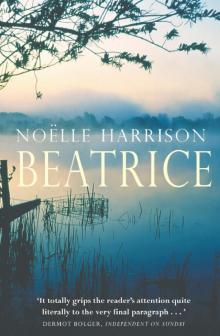 BEATRICE
BEATRICE The Song of the Cid
The Song of the Cid